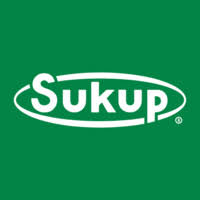‘Green to Gold’ author speaks at TAI symposium


He talked about how sustainability-focused strategies are helping companies save money, drive revenues and build brands. His latest book, “Green Recovery,” focuses on how environmental thinking and technology could help companies survive during hard economic times.
Here of some points from his presentation:
Change agent
Regardless of differing opinions about climate change, companies can turn that highly politicized topic into a brand-building moneymaker.
“The leaders are saying, ‘It doesn’t matter if you believe in the science for climate change.’ The logic for business is overwhelming; it saves us money.”
Good measure
A heightened sense of awareness tends to lead individuals and organizations to decrease their energy consumption.
“If you give people an energy meter – you show them the data in their homes or in their cars – they will reduce energy usage by 10 percent to 20 percent. It happens over and over again. This is also done in the corporate world.”
Real deal
In addition to stocking more of their shelves with products that meet the standards of green-minded consumers, retailers such as Wal-Mart Stores Inc. are asking suppliers to track and report more information about supply chains.
“It’s being driven upstream. What I hear repeatedly is that this sustainability stuff becomes a tiebreaker. It’s becoming a dealbreaker.”
Open book
Websites such as www.GoodGuide.com that provide information about the environmental and social performance of products and companies are fueling demand for more transparency in the marketplace and helping consumers make purchasing decisions that reflect their values and preferences.
“This is where we are heading: real-time assessment of products … where people can make choices as they go.”
No Plan B
New laws and social expectations may affect how companies think about sustainability, but it is an evolving corporate culture coupled with the expectations of employees and customers that will spur companies to green up.
“The question I pose to businesses: Does compliance really matter? Is that the right word for going green? There are no alternatives.”
New view
By asking questions that challenge traditional methods, some companies are reinventing their approach.
• Minimizing left turns has helped United Parcel Service Inc. save millions of gallons of fuel.
• Xerox Corp. has asked customers to use less of their products.
• Data center operators have reduced costs by cooling facilities with outdoor air during winter months.
• Companies are opting out of physical environments altogether.
“People are starting to ask: Do we even need a data center at all? The cloud-computing thing is taking root. Microsoft did a study with a consulting firm recently and showed that for big companies, they can save 20 or 30 percent on their energy and carbon by going to the cloud. It’s self-serving for them, but it is still true. For small companies, they can save something like 90 percent of their footprint.”











